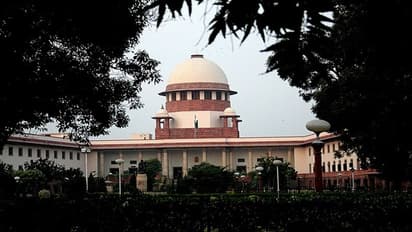Article 370 verdict: J&K does not hold any internal sovereignity after accession to Union of India, says SC

Synopsis
Article 370 granted Jammu and Kashmir substantial autonomy while restricting the Centre's legislative authority to finance, defence, foreign affairs, and communications. Its abrogation by the Centre in August 2019 sparked debates on its constitutional validity and the implications of its revocation.
The Supreme Court on Monday (December 11) heard a list of pleas on abrogation of Article 370 and said Jammu and Kashmir does not hold any internal sovereignty after accession to Union of India. A five-judge Constitution bench, led by Chief Justice DY Chandrachud and comprising Justices Sanjay Kishan Kaul, Sanjiv Khanna, BR Gavai, and Surya Kant pronounced the judgment. The apex court's decision, reserved after an extensive 16-day hearing, holds the potential to profoundly impact significant decisions undertaken by the Centre over the past four years.
The Supreme Court said, "No maladies in exercise of power under Article 370(3) by President to issue August 2019 order. Thus, we hold the exercise of Presidential power to be valid."
Odisha's ongoing IT raids see rise in seized funds on Day-6; Cash haul crosses Rs 350 crore
Before pronouncing the verdict, CJI DY Chandrachud said, "The exercise of the President's power for everyday running of business cannot be subject to regular judicial review. The power of the Legislature of the State under 357 to repeal or amend the law must be read in the context of 42nd amendment act.. The repealing statute would make subsistence for the legislation. An ordinance, which is in nature of law, has limited life."
It can be seen that Article 370 granted Jammu and Kashmir substantial autonomy while restricting the Centre's legislative authority to finance, defence, foreign affairs, and communications. Its abrogation by the Centre in August 2019 sparked debates on its constitutional validity and the implications of its revocation.
Article 35A introduced in 1954 via a presidential order under Article 370, extended authority to the Jammu and Kashmir legislature to define permanent residents. It imposed stringent limitations on non-residents, prohibiting them from acquiring land, government jobs, or educational scholarships within the region.
'Peddling Pakistan's fake narrative...' MEA slams claim on 'secret memo' to North American missions
The aftermath of Article 370's revocation witnessed the reorganization of the erstwhile state into two Union Territories—Ladakh and Jammu and Kashmir. Ladakh was established as a Union Territory without a legislature, while Jammu and Kashmir retained a legislative assembly.
Stay updated with the Breaking News Today and Latest News from across India and around the world. Get real-time updates, in-depth analysis, and comprehensive coverage of India News, World News, Indian Defence News, Kerala News, and Karnataka News. From politics to current affairs, follow every major story as it unfolds. Get real-time updates from IMD on major cities weather forecasts, including Rain alerts, Cyclone warnings, and temperature trends. Download the Asianet News Official App from the Android Play Store and iPhone App Store for accurate and timely news updates anytime, anywhere.